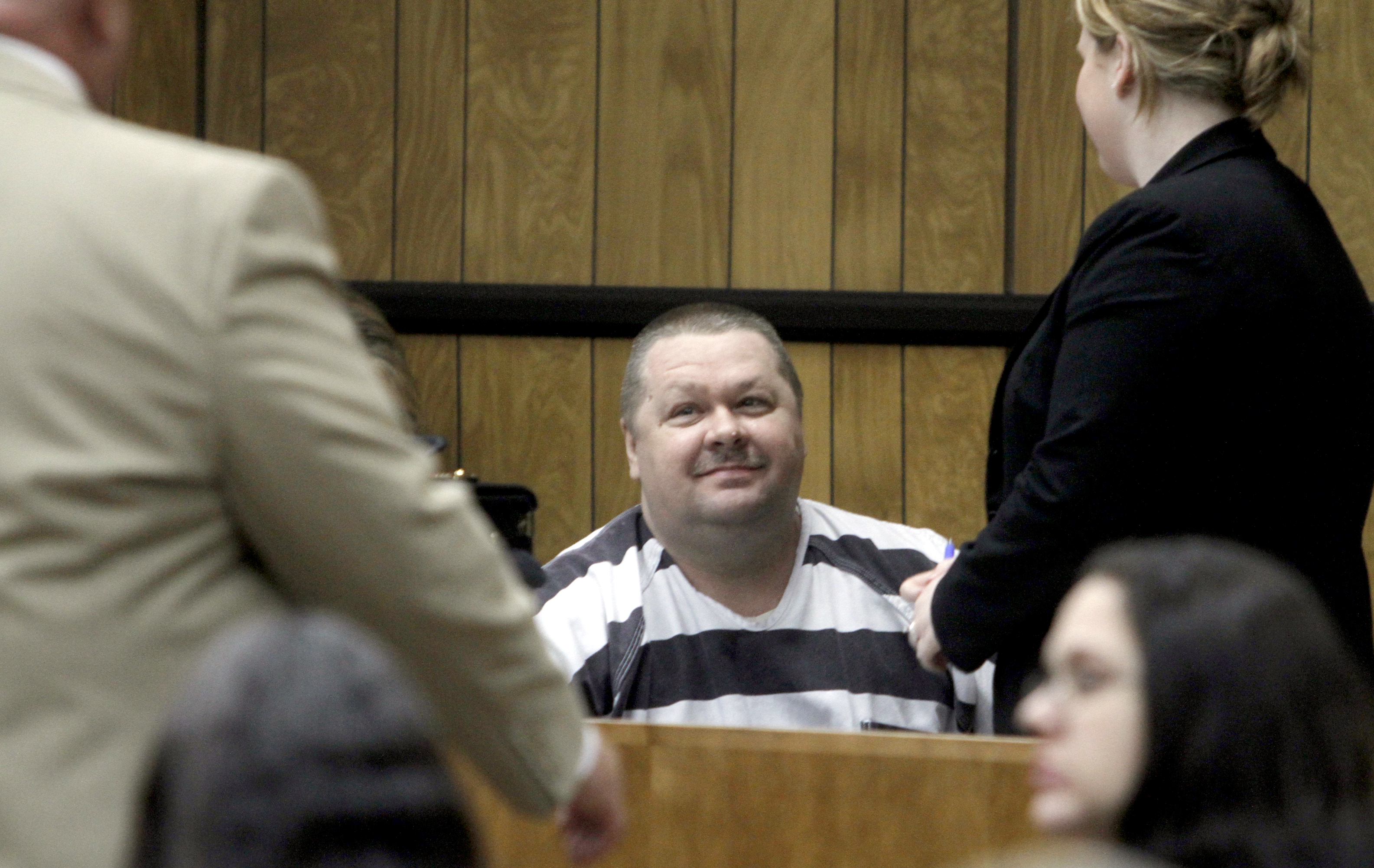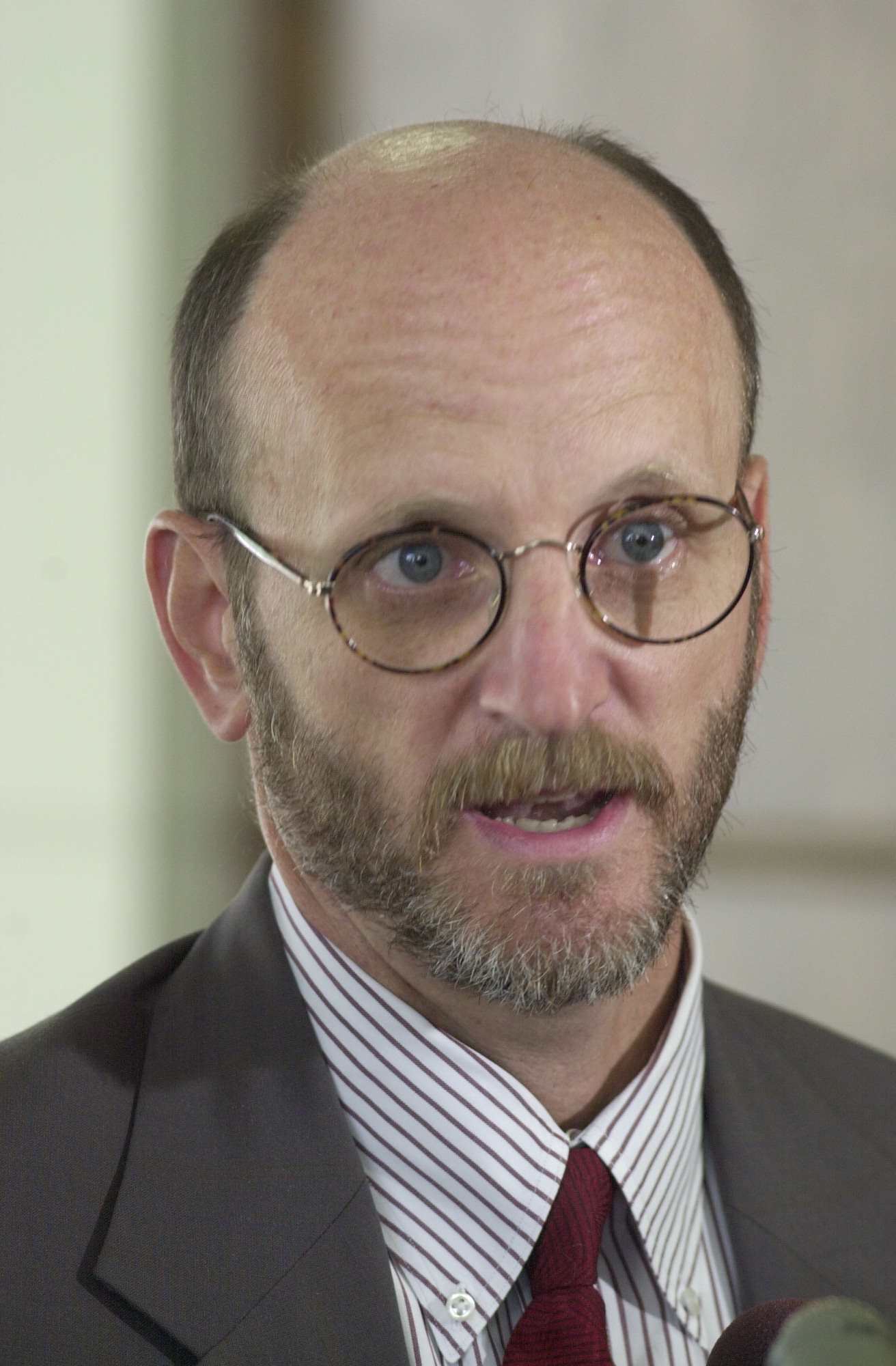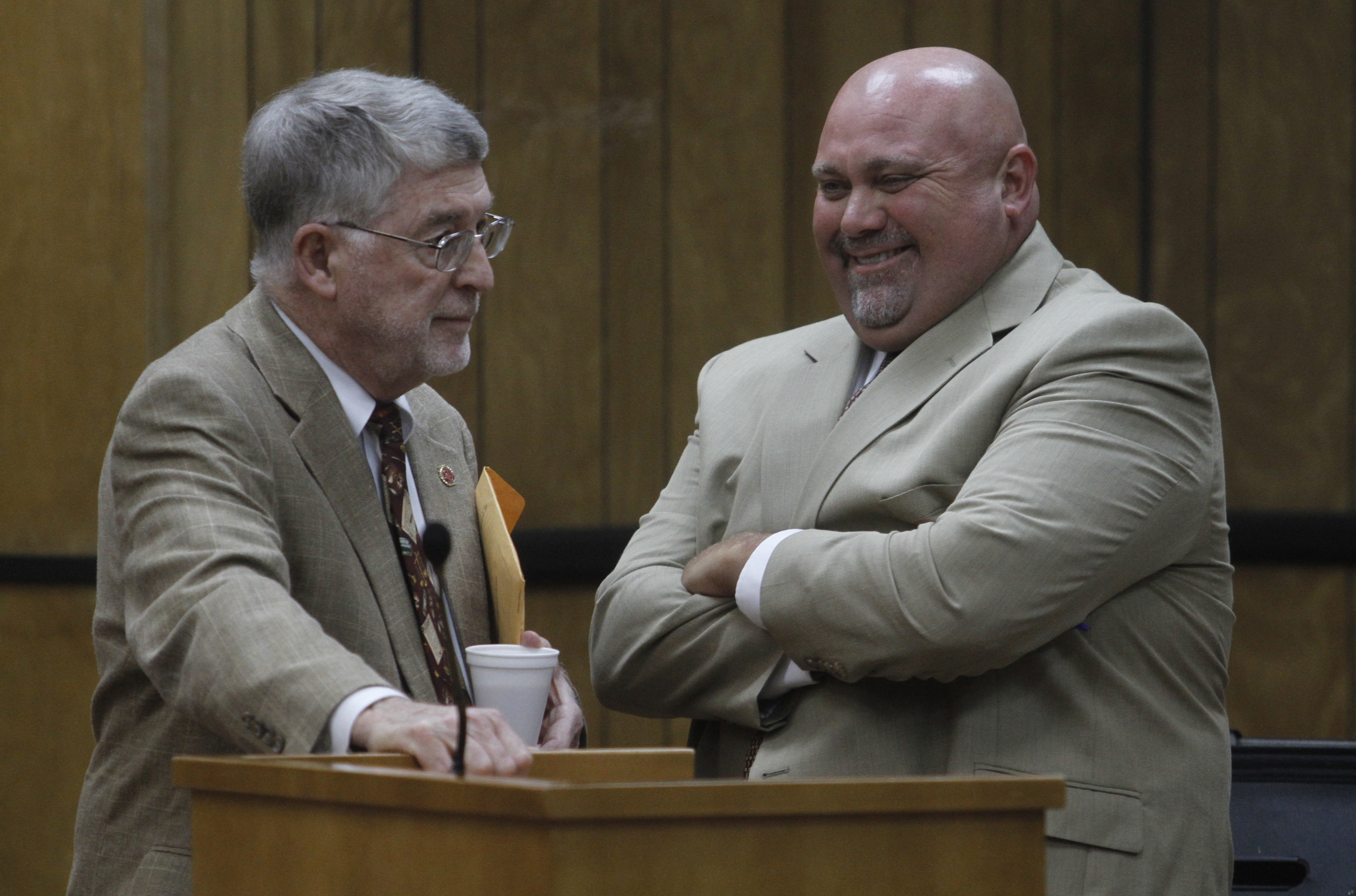
See full stories about how three murder charges against Valentine's Day murder defendant Michael Younger, of Cleveland, Tenn., were thrown out in 2010 and about challenges to evidence and witnesses that collapsed the murder and child rape case in 2010 against Athens, Tenn., resident Mitchell Delashmitt.
None
Also see today's other articles:Records show history of impropriety in 10th Judicial DistrictA litany of casesMondayA friend to the police.TuesdaySome former officers cry foul.WednesdayParties, perks and pricey dining.ThursdayQuestions swirled around drug chief.FridayHow drug agents brought in millions.
The cases boil down to "either-or." Either an abused and possibly mentally ill woman was coerced into a confession in a 2010 Monroe County slaying, or a participant in a cold-blooded robbery-murder might go free. Either an innocent man was held in jail for more than two years and his rights deliberately trampled, or the killer of a Sweetwater, Tenn., businessman in 2006 got away with it when murder charges against him were dismissed last month.
In both cases, what really happened may be hard to prove because of what defense attorneys claim are prosecutors' missteps or misconduct, including withholding evidence and violating defendants' rights.
But it wouldn't be the first time for such allegations in the 10th Judicial District.
The district attorney's office was able to convict only one of three accused killers in perhaps the region's most notorious case - the 1999 Valentine's Day triple slaying in Cleveland, Tenn. - partly because prosecutors withheld evidence and disobeyed the judge's order, court records allege.
And an Athens, Tenn., man spent four years in jail, charged with raping and murdering his toddler daughter, before allegations surfaced that the child's autopsy was botched and his false confession coerced by detectives in the case.
John Cavett is a Chattanooga defense attorney who represented Michael Younger, whose three murder charges in the Valentine's Day slayings were dismissed after the judge declared a mistrial because of prosecutors' misconduct.
"Even though I'm a defense attorney, so I'm on the side of the defendant, I think it's a real shame when people that should be prosecuted don't get prosecuted or get released because of malfeasance in that office," Cavett said. "If I was a citizen up there, I'd be upset about that."
District Attorney General Steve Bebb's office has said the Younger investigation is still open and that he could face charges again in the case.
Cavett doesn't think that will happen.
"They've got no case against him," he said.
JESSICA KENNEDY
The woman accused of pumping bullets into the head of Monroe County Election Commission Chairman Jim Miller might have done it.
She says - sometimes - that she did.
Other times, Jessica Kennedy says someone else robbed and shot Miller, 60, at a Monroe County house in July 2010, then dumped his body into his car and set it afire. Her trial on charges of felony murder, aggravated robbery, arson of personal property and abuse of a corpse is scheduled to start Monday.13
That's over the vociferous objections of her attorney, John Eldridge, of Knoxville, who has complained in numerous court filings about what he calls "outrageous" withholding of evidence and other alleged misconduct by 10th District prosecutors that affected his ability to mount a defense.
Among other allegations, Eldridge has claimed in motions that Kennedy was held in isolation and interrogated without federally required Miranda warnings; that her confession was coerced; and that prosecutors for months withheld video and audio statements, other evidence and even the location of the crime scene.
He has noted that several other people alleged to have knowledge of or who may have participated in the crime have not been charged. He also has filed unsuccessful motions asking that the indictment be dismissed and the 10th District removed from the case.
On July 30, Special Judge Walter Kurtz denied Eldridge's motion to suppress Kennedy's confession, which the state intends to introduce in court. (See Kurtz's ruling online.)
However, Kurtz noted in his order that the statement is one of 11 Kennedy has made, all different.
"Just what weight the jury will accord the confession given the number of statements and their inconsistency remains to be seen," Kurtz wrote in a footnote to his ruling.
According to Kurtz's order, Kennedy, 29, was in jail on other charges in the summer of 2010 when she told investigators she knew something about Miller's slaying. She was released for awhile but kept talking to investigators at the Monroe County Sheriff's Office. She was treated as an information source, not a suspect, the judge noted.
Kennedy was arrested again in late October 2010. According to Kurtz's ruling, which included testimony from a hearing, she was kept in a holding cell without a toilet, water source or mattress.
She told jailers and the Tennessee Bureau of Investigation that she was frightened; her onetime boyfriend Brandon Steele, who was also in the jail and who she had said was involved in the killing, "would come down the hallway and threaten her with statements like, 'You better keep quiet' and 'I can get to you,'" the judge wrote.
After five days in the cell, Kennedy gave a confession that ran four pages. It was her second statement in two days. In it, she said she posed as a prostitute to lure Miller to where two men, Boonie Stokes and Shawn Corn, robbed and shot him. She helped load the body into the car, she said.
On Nov. 10, she gave yet another statement saying she had shot Miller herself.
"She says that at the time she was 2-3 feet away from Jim Miller when the shots were fired - that she had blood splatter on her afterward. She describes being close enough to see clearly the diamond ring on his hand," Kurtz wrote in his order.
The next day she was moved to the jail's general population, he noted.
That statement conflicted with prevoius and later statements naming different people as triggermen, the judge wrote. Kennedy told investigators she was trying to protect her children.
In January 2011, while jailed in Meigs County on a separate charge, she was charged with murdering Miller.
Eldridge became her attorney in early September and immediately started asking to see the evidence. (See his motion at timesfreepress.com)
By April, Eldridge had filed a motion asking either that the indictment be dismissed "for prosecutorial abuse" or that Assistant District Attorney Jim Stutts and Monroe County Detective Doug Brannon be hauled into court and charged with contempt for failing to turn over court-ordered evidence. No action was taken.
A psychologist who examined Kennedy found evidence of a history of abuse and mental health issues, according to the court file.
Eldridge has filed motions asking for information about other people, including offers of immunity or leniency to other possible defendants in the case. He has pointed out in court documents that Miller was a large, strong man and that Kennedy is 5 foot 7 and slightly built.
Last week, Eldridge renewed his protests that prosecutors were withholding evidence, the Knoxville News Sentinel reported. According to the newspaper, Eldridge told Kurtz he learned only on July 28 that two rings and a money clip that belonged to Miller were found in the possession of Travis Nipper, an acquaintance of Kennedy.
Stutts has said in responses to Eldridge's motions that the prosecution has tried to turn over all evidence in a timely way and that Eldridge has sometimes delayed or missed opportunities to review it. Stutts also said Eldridge has asked for materials that the prosecution doesn't possess.
"I think if you will look at Mr. Eldridge's motions and get transcripts of hearings where Judge Kurtz addressed his concerns, and look at the orders Judge Kurtz put down, you will find the court is satisfied that he [Eldridge] has been timely and, more than he was required, supplied any and all information," Stutts said in a July interview.
In the same interview, Bebb said his office has always maintained an "open file policy" in criminal cases.
"I had had problems in the past with local attorneys - 'I didn't get this, I didn't get that.' So we've even got a system in now where they have to sign for what they get. But we open the file to them and they can copy anything in the file they want except [material exempt by law]," he said.
Eldridge said that's not the way the office has worked for him.
"The only discovery that I received under the 'open file' operation of that office is what happens to be in his [the DA's] file," Eldridge said.
However, he said, much evidence he is entitled to receive was eventually tracked down somewhere other than the DA's office.
"As we have learned, there is a lot that has not been in his file. And I do not know why," Eldridge said.
JOHN EDWARD DAWSON
John Edward Dawson's legal limbo drops lawyers' jaws.
Until late July, he had been in jail for more than two years on a murder charge in the 2006 shooting of Sweetwater businessman Troy Green. For much of that time, he had no way to get into court to challenge the indictment or ask for bail.
That's because the Tennessee Court of Criminal Appeals ruled in July 2011 that the 10th Judicial District's misconduct in a previous case involving Dawson was so "reprehensible" and "unconscionable" that it could not be allowed to try him on the murder charge.
It took months to name a special prosecutor, but when a hearing finally was held in July, a judge threw out the murder indictment. A witness testified that he had been coached by a Monroe County Sheriff's Office detective to commit perjury in order to implicate Dawson. (See documents, "Dawson dismiss" and "Dawson response," online.)
The witness, Monty Cox, said Detective Pat Henry convinced him to name Dawson as the man who sold him a gun owned by the murder victim.
"In my mind at the time, he convinced me Eddie was a murderer and if I changed one thing in my statement, it would take a murderer off the street and make the world a better place," Monty Cox said in court.
The prosecutor, Hamilton County District Attorney Bill Cox - no relation to Monty Cox - asked for a complete new investigation into Green's slaying.
"I've never heard anything like it, maybe never will," said Dawson's appointed attorney, Brian Nichols, of Loudon, Tenn.
The story is played out in court records.
According to news reports at the time, Green disappeared while delivering produce and his wife reported him missing April 22, 2006. His car was found two days later in McMinn County, and the body was found May 6 in Roane County with head wounds and broken ribs. Dawson was indicted in January 2010 in the death.
The appeals court's disqualification of the 10th District in that case arises out of Dawson's first go-round with Monroe County justice in 2008.
While Dawson was awaiting trial on drug, burglary and vandalism charges, a Monroe County detective and an investigator convinced his cellmate to snitch, planted a recorder in the cellmate's shoe and one pretended to be a mob-connected lawyer to pump Dawson for information in Green's killing.
Henry and then-Investigator Doug Brannon persuaded Dawson to stop talking to his court-appointed public defender and talk to them instead. They created fake letters from the purported attorney, "Paul Harris," for cellmate Todd Sweet to show Dawson.
One letter stated that "Harris" had arranged for Dawson's impounded truck to be released to his wife. The Monroe County Sheriff's Office played along and released the truck to her.
Dawson pleaded guilty to the drug and vandalism charges, but he filed an appeal claiming the state had interfered with his constitutional right to counsel.
Most emphatically, the court agreed. (See the opinion online.)
The "subterfuge did more than simply infringe upon the defendant's right to counsel, it completely usurped it," Judge James Curwood Witt Jr. wrote in the unanimous opinion dated Jan. 13, 2011.
"The conduct of the law enforcement officers in this case ... is so egregious that it simply cannot go unchecked. ... That the detective would specifically instruct the defendant not to communicate the relationship to his appointed counsel, in what we can only assume was an effort to enlarge the time for the detective to gain incriminating information from the defendant, renders completely reprehensible the state action in this case."
Witt also noted that TBI Agent David Guy testified in a hearing that he had "voiced his concern" to Bebb in November 2008 about the use of Sweet to snitch on other inmates, and that Bebb had phoned the Monroe County sheriff in his presence to order it stopped.
Bebb told the Times Free Press in July that he had specifically told the sheriff's office not to let anyone talk to Sweet, whom he described as "one of the best con men who ever lived."
"I was as shocked as anybody when I learned what they had done," Bebb said.
However, Monroe County Sheriff Bill Bivens testified in court in 2010 that he didn't remember receiving such a phone call. He also said he never investigated the detectives' behavior or disciplined them.
Conflicts of interest
When Nichols asked that the 10th District be disqualified from prosecuting Dawson in the Green case, Criminal Court Judge Amy Reedy agreed.
Her order stated that Bebb's office had actual and perceived conflicts of interest, and included several findings of fact:
* That Assistant District Attorney Jim Stutts gave legal advice to Brannon and Henry about the deception.
* That Bebb knew the sheriff's office was using Dawson's cellmate as an informant.
* That when Henry was questioned about the scheme to trick Dawson with fake letters and lawyers in a sworn court hearing, he declined to testify based on his Fifth Amendment right against self-incrimination.
* That Henry could have been prosecuted because he posed as a licensed attorney, which is illegal. [See document, "Dawson order," online.]
Bebb, though, did not investigate or charge Henry. Bebb testified under oath in an unrelated federal trial in Knoxville about his reasons.
"The reason I didn't prosecute them was because the motive that they did that with was to solve a murder," he said. "It was not for their personal gain, and they lost their jobs."
In fact, that last part wasn't true. Brannon is still a detective at the Monroe County Sheriff's Office and Henry works part-time there; both testified at Dawson's hearing in July.
The Times Free Press interviewed Bebb in July and asked about the discrepancy.
"I was told they had lost their jobs," Bebb said.
He said he couldn't remember who told him that or when, but said he didn't feel it was right to prosecute the officers if they had been fired.
"Today, when I look back, I'm not sure I made the right decision," he said.
Contact staff writer Judy Walton at jwalton@timesfreepress.com or 423-757-6416. Subscribe to Judy on Facebook at Facebook.com/JudyCTFP



